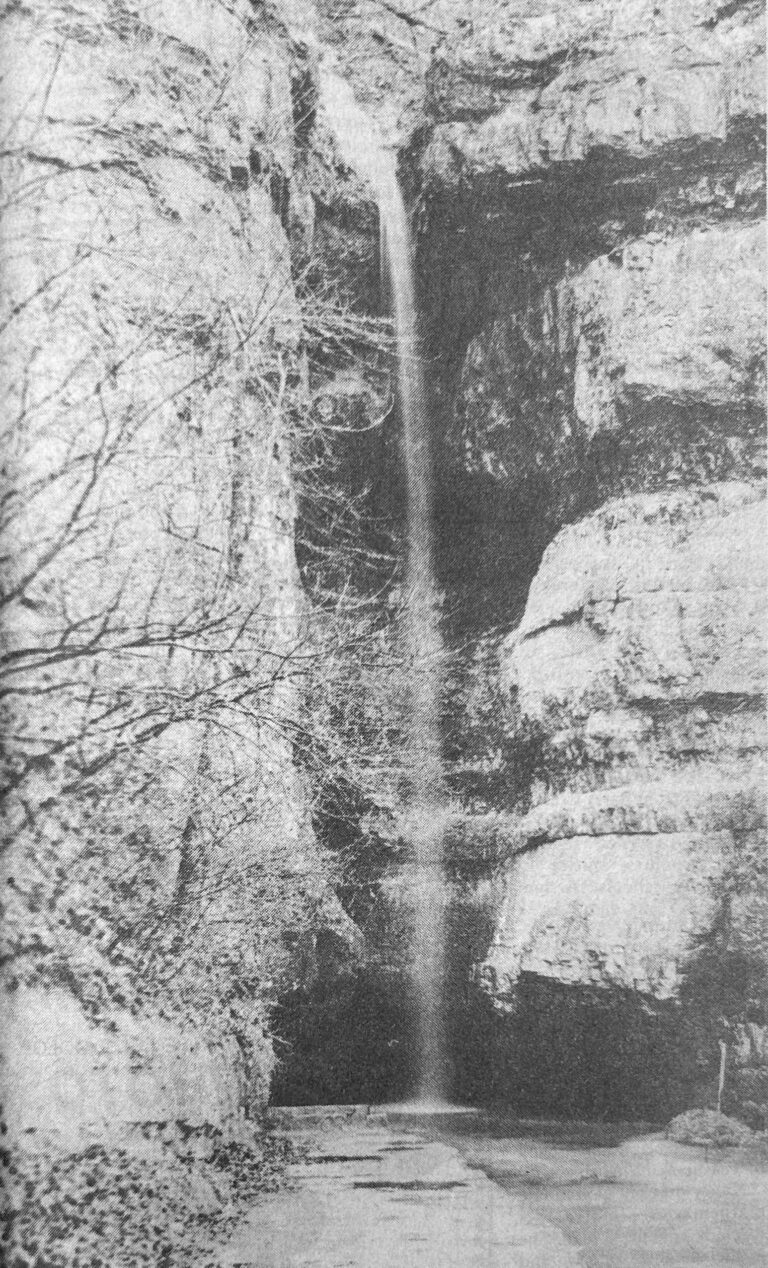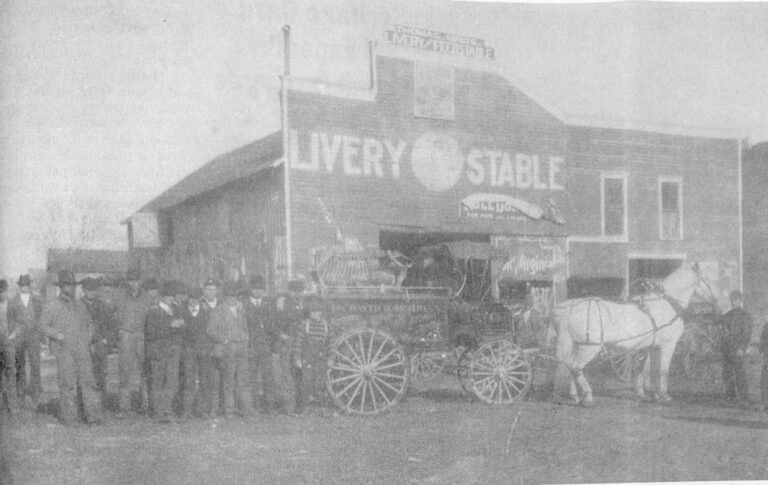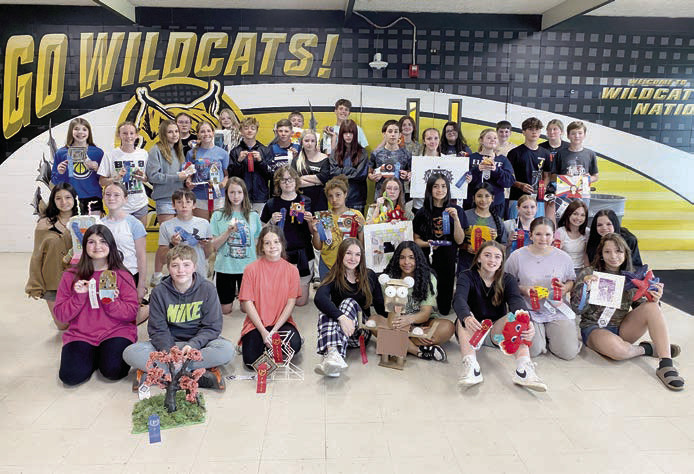Through the Years, March 27

50 years ago
April 3, 1974
— NEW MANAGERS NAMED
Mr. and Mrs. Jim Stephens of Cassville have been named managers of the Western Auto Store here according to George Simpkins. Abner Roberts, former manager, will devote full-time to S & R Sales and Service here. Mr. and Mrs. Sephens, natives of this area, were formerly associated with OTASCO and Peterson Drug, respectively. They assumed the new posts on Monday.
— AXLEY FAMILY PURCHASES CULVER FUNERAL HOME
Culver Funeral Home in Cassville, in operation since 1931, has changed ownership. Mr. and Mrs. Art Axley formerly of Chelsea, Oklahoma and Mr. and Mrs. Gary Axley of Mowyrestown, Ohio, have purchased the firm from Mr. and Mrs. Paul Henbest. The Axley families assumed operation of the firm April 1. Both families will live at the home on Gravel Street. Mr. and Mrs. Henbest will continue assisting them for a period of time. Joe Holder, licensed embalmer, and funeral director from Butter-field will also remain with the firm. Holder joined Culvers in 1972. Originally owned by Mr. and Mrs. Earl. Culver the business has passed to their daughter and son-in-law in recent years. Mr. Culver Dassed away in 1969 and Mrs. Culver died in 1972. Both Axleys are licensed funeral directors in their respective locations. The younger member of the new firm includes two daughters, Kimberly and Angela in his family. Mr. Culver came to Cassville in 1931, joining P. E. Horine in the funeral home business. Mr. and Mrs. Henbest joined the firm in the late 1940’s.
— GWEN INDUSTRIES MOVING VANITY PLANT FROM KANSAS
A former Kansas firm which manufactures several types of wooden vanities located in Cassville Monday. GWEN Industries, formerly of Humblot and Chanute, moved into spaces rented from the City of Cassville, and will begin the process of manufacturing next week. Officials of the company include Bob Yockey, president; Larry Anderson, vice-president and John Swindle, secretary- treasurer. Anderson and Swindle own a farm in the Purdy community and have been contemplating moving here for sometime. The firm will manufacture approximately 1,500 vanity furniture items for lumber and chain outlets over a wide area. The item is manufactured and shipped in a knock-down form for assembly by do-it-yourselfers. Tops for the items are not manufactured here. Employment at the firm will be six to start with hopes to reach 12 within six months. GWEN will use the 5,600 square feet in the city building which is not devoted to fire station or storage facilities. Renovation of the building and installation of needed wiring and plumbing started Monday. The firm, which comes here by mutual cooperation from the First National Bank and Chamber of Commerce, signed a year’s lease on the week with property last Mayor Bill LeCompte. Operations in Cassville will be also supervised by Denny Holenda, shop foreman. Hol-enda and Yockey, whose families include a combined 10 children, will be moving here in the near future. GWEN hopes to reach a multi-shift operation in the near future. Orders above present contracts will determine this type operation at the Third and Main Street location. The firm was at one-time involved in the recreation vehicle production in Kansas. Their plant was demolished in a tornado at Humbolt several years ago. They have been manufacturing the present product about a year and one-half. Anderson and Swindle were officially introduced to the Cassville business com- munity during a Tuesday morning breakfast meeting of combined Chamber of Commerce and Industrial Development interest here. Complete operations, from the wood raw material through finishing lines, will be maintained at the plant. officials said hopefully the firm would progress and grow in this location and require additional space in the years to come. They are also looking at additional lines which can be produced through their equipment. Swindle and Anderson said the switch from the RV production to cabinet type manufacturing was a natural for the firm. A slowdown in recreation vehicles also contributed to the decision to make a change. In addition to homes and basements, GWEN produced bedside tables are used extensively in hospitals and nursing homes.
40 years ago
April 4, 1984
— CATHOLIC CHURCH ON THE MOVE
St. Edward’s Catholic Church of Cassville has completed purchase of seven acres on Highway 37 near the north edge of town. The purchase was made from Leon Sanders, east of Cassville Municipal Airport. Jack Barrett, a member of the church council, said plans of the local parish were for future construction of a new building. The church is presently located on West 17th Street.
—SPRING PLANTING
You had better have another cup of sassafras tea to get your blood flowing because spring planting is nigh. You can begin planting fruit plants as soon as your soil can be worked. In case you received nursery stock before you can plant it, be sure to check it and store it properly. The first thing to do upon receiving nursery stock is to check it for damage, proper quantity, and any other possible discrepancy. Should anything be amiss, report it to the nursery immediately. The roots of stored plants should be kept damp (not wet) and cool (not freezing). One way to accomplish this is by “heeling in.” To heel in plants, dig a trench big enough to accommodate all the roots, lay the roots of the plants in the trench, and cover with soil or a mound of sawdust. It is common to heel in the plants in such a way that the plant tops are nearly recumbent. If this is the case, be sure to point the tops of woody plans such as trees or bushes toward the south; otherwise, the winter sun may be shining directly on the stems, possible inducing premature bud break. Another way to store nursery stock is to place it in a cellar or basement, again making sure that the plants do not freeze and that the roots stay damp. Small quantities of stock may be stored in a refrigerator, but make sure that the refrigerator does not also contain apples or any other ripening fruits or vegetables. Ripening fruits and vegetables give off small amounts of ethylene gas which can induce premature bud break. The same warning applies to root cellars or basements where apples, potatoes, etc., may be stored. While planting any perennial plant, take care to prevent the drying out of roots. Keep plants in a moist burlap bag or in polyethylene bags. If the plants are kept in polyethylene bags, do not allow them to lie in the sun for very long. Some basic rules of planting fruit plants apply to everything from strawberries to standard sized apple trees: Make the planting hole large enough to accommodate roots without bending or breaking; spread the roots out evenly in the hole; tamp the soil down around the roots as the hole is filled; and water the plants after planting. Planting depth is important for the different fruit crops. For strawberry plants, the crown must be left exactly at ground level. If it is planted too deep or too shallow, the plant will be injured and may even die. Some recent research with blueberries indicated that planting depth is equally crucial for these plants. Blueberry plants should be planted at the same depth they were in the nursery. For most grafted trees the graft union should be left just above the soil. However, grafted apples on standard rootstock and pears on Caller Yana rootstock should be planted so that the graft union is just below the soil surface. Most interitem trees should be planted so that the first (lowest) graft union is just below the soil. Finally, I would be remiss if I did not address the problem of planting deep-rooted crops where there is an underlying hardpan. The hardpan can severely limit the root growth of deep-rooted plants, so it is very important to break through it. Digging your hole in a cross or star shape will help prevent the “flower pot effect” by allowing roots to grow down and out rather than become root bound as can happen in a round hole in a hardpan soil. Mixing sawdust, leafmold, or other decomposed organic matter with the refill soil will further aid root growth.
30 years ago
March 23, 1994
— LUTHERAN SYNOD BUYS EAGLE ROCK LOCATION A future church site has been purchased in the Table Rock Lake community of Eagle Rock by the Evangelical Lutheran Church of America, Mid-States Synod. The location includes 1.55 acres on Highway 86 just east of the community post office. The site is on the north side of the highway. Plans call for Community Lutheran Church to construct a building at the newly acquired site. Presently the congregation is holding services in the former Raspberry Station building. congregation and synod plans fare to have a permanent structure on the site within the next three years. Pasturing the congregation is Julius Peterson.
— MISSOURI POSTS FEWER FARM NUMBERS, 98,082 Results of the Census of Agriculture show that Missouri had 98,082 farms in 1992 compared to 106,105 farms in 1987. Also, Missouri had 28,546,875 acres of land in farms in 1992. The Commerce Department’s Census Bureau reported that about 48 percent of all farms sold. $10,000 or more in agricultural products. Missouri’s leading agricultural products in 1992 were cattle and calves with sales of $1.17 billion dollars compared to $1.07 billion in 1987. The average age of operators in Missouri was 53.8 years. Farming was the principal occupation of 49,248 of the 98,082 operators. Other findings: $1.86 billion or 43 percent of total agricultural sales were for crops, while $2.44 billion or 57 percent came from the sales of livestock, poultry, and their products. Agricultural production expenses for Missouri totaled $3.39 billion. The state’s operators paid $469.89 million for livestock and poultry purchased, and $751.67 million for feed for livestock and poultry. Also, they paid $301.30 million for commercial fertilizers and $170.48 for agricultural chemicals.




